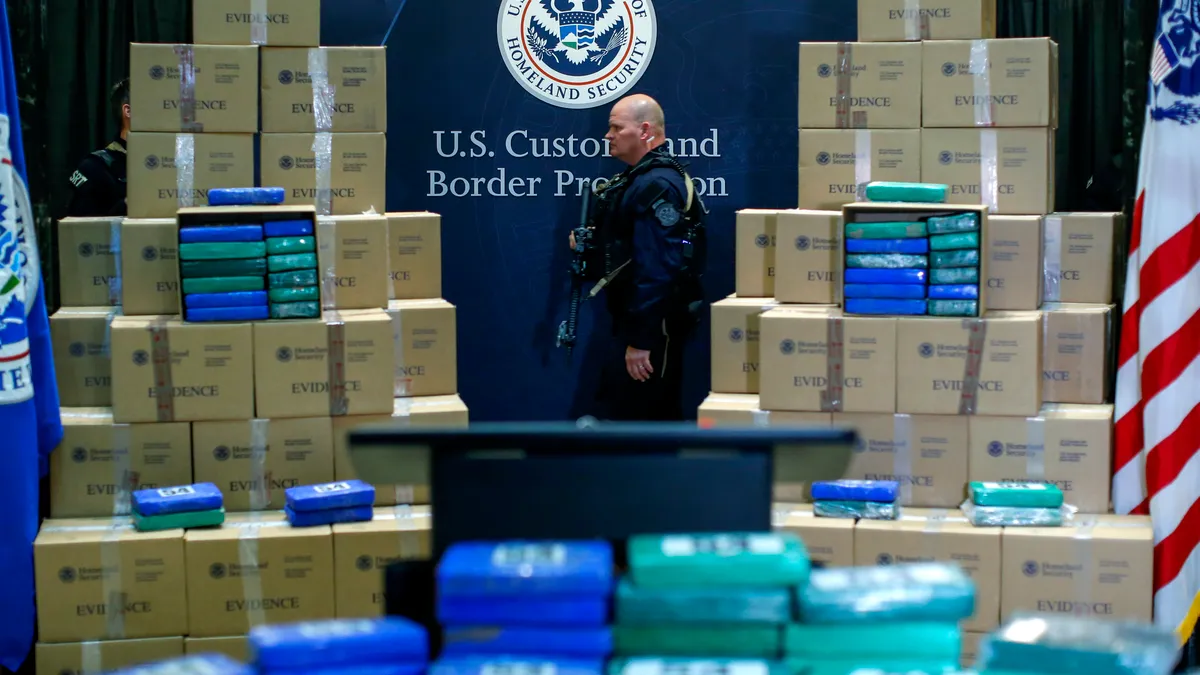The U.S. de minimis exemption will no longer apply to products from China and Hong Kong starting next month, the White House announced Wednesday, and its elimination is slated for other countries soon.
On May 2, imported goods from China and Hong Kong that would historically qualify for the exemption will be subject to all applicable duties, as long as they did not enter the U.S. via the international postal network.
If they do enter via the postal system, a duty rate of either 30% of their value or $25 per item will apply in lieu of any other fees. The $25 charge will increase to $50 per item after June 1. U.S. Customs and Border Protection may require postal packages to go through formal entry procedures, per the White House, in which case they will be subject to all applicable duties, taxes and fees.
Additionally, the de minimis exemption will be eliminated for imports from countries tariffed by the U.S. once "adequate systems are in place to fully and expeditiously process and collect duty revenue" for affected imports, according to an executive order signed by Trump on reciprocal tariffs. The exemption will still apply, however, to eligible items brought during travel and gifts.
The de minimis exemption, which allows sub-$800 packages to enter the U.S. duty free, has helped companies like Shein and Temu limit shipping costs and keep inventory lean by bringing products directly from factories in Asia to consumers. It's also been used by smaller brands reliant on China-to-U.S. delivery or reselling China-based goods.
However, the Trump administration, lawmakers and U.S. Customs and Border Protection officials have spoken out against the trade tool, in large part due to contraband entering the country via low-cost packages.
"President Trump is targeting deceptive shipping practices by Chinese-based shippers, many of whom hide illicit substances, including synthetic opioids, in low-value packages to exploit the de minimis exemption," the White House said in its announcement regarding the China de minimis elimination.
Trump's order on China is set to expose a range of low-cost imports from the country to added tariffs imposed by his administration. He has increased duties on products from the country by 20%, and on April 9, the U.S. will begin charging China a 34% tariff.
The action also brings some clarity for de minimis-reliant shippers who have attempted to adjust to a wave of policy shifts related to the exemption. De minimis briefly went away in February for China-based imports before being reinstated days later, as the White House looked for ways to collect tariff revenue on impacted shipments more effectively.
A big hurdle in implementing effective collection systems was how to levy duties on shipments flowing through the postal system, said Cindy Allen, CEO and managing director of the consultancy Trade Force Multiplier, in a February webinar.
The U.S. Postal Service suspended inbound packages from China and Hong Kong's postal systems for a short period when the Trump administration initially nixed the exemption. The struggles the agency faced with duty collection drove the decision to reinstate the exemption for China-based goods, according to Allen.
"The main driver for the rescission is because [the] Postal Service needs to get a system in place," Allen said. "Every other channel has a system."
The Commerce Secretary will submit a report within 90 days of the order assessing its impact and whether to extend the rules to packages from Macau, according to the White House.















